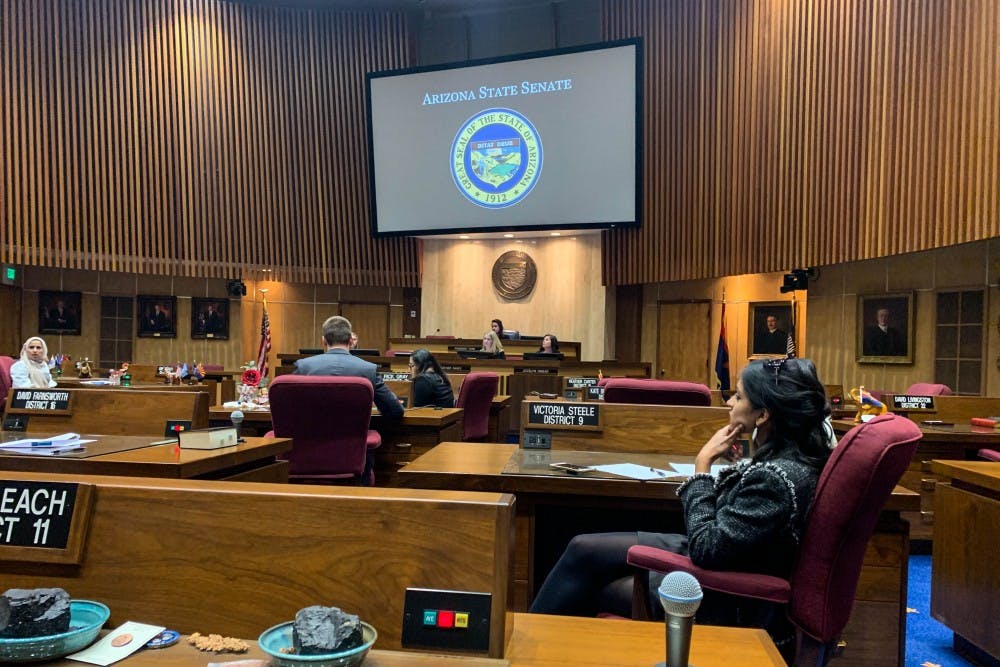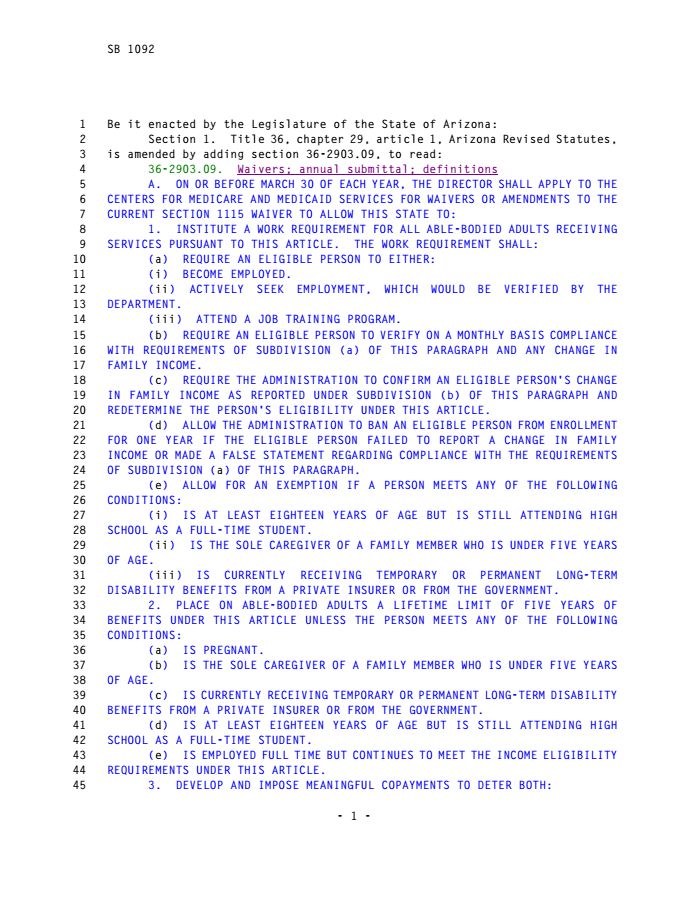Changes to Arizona's Medicaid program that were recently approved under the Trump administration will establish some of the most rigid work requirements in the country, potentially impacting ASU students who currently qualify for the program.
The new provisions to the state's Medicaid program were outlined in a law that the Arizona Legislature passed in 2015. But the provisions weren't allowed to go into effect until they were approved in January, following review from the Centers for Medicare and Medicaid Services (CMS).
The work requirements, set to go into effect no sooner than Jan. 1, 2020, would require enrollees to report 80 hours a month of job training or working, attending a school full-time, volunteering or actively seeking employment.
Those advocating for the policy claim that it encourages employment or community engagement and will positively impact those on Medicaid.
"Actively engaging in work, school or other community engagement can have a profoundly positive impact on an individual's quality of life and health," said Republican Rep. Nancy Barto (LD-15), who spearheaded the 2015 bill when she was in the state Senate. "Enabling individuals who are able-bodied to move intentionally and incrementally towards self-sufficiency through common sense work requirements is sound policy."
While exemptions do exist for those unable to work, such as mothers who have recently given birth and those who have physical disabilities, Arizonans are at risk of losing their Medicaid entitlements if the state deems them able to complete work but non-compliant with the new requirements.
Attending college full-time counts as an exemption for any students directly benefitting from Medicaid, but a student who is on Medicaid can still be found non-compliant if they go to school for less than 80 hours a month or if they fail to communicate their educational status to the Arizona government.
Some ASU students and professors raised concerns about how the work requirements could impact the University's Medicaid population and what they say is a lack of evidence behind the policy.
"I had no idea that these requirements were even passed," said Edward Faillace, a mechanical engineering graduate student at ASU who is eligible for Medicaid. "I was not aware that my eligibility could be compromised by these work requirements."
Arkansas – the first state to impose work requirements for Medicaid – found nearly 17,000 individuals have lost their Medicaid after passing the new requirements, according to a November 2018 Arkansas Department of Human Services monthly report hosted on the Arkansas Times' site.
In addition, 62 percent of Arizonans enrolled in Medicaid are already employed, causing some experts to raise concerns about the reasoning for the work requirements, Swapna Reddy, a clinical professor of the College of Health Solutions at the ASU Downtown campus, said on Arizona Horizon.
"I have no problem with people working or approaches that help to lift people out of poverty, my concern is if this is actually going to do it," Reddy said. "We don't have any states that are a great model or any evidence to actually show that this truly works in terms of getting more people on Medicaid to work or in terms of getting more people on Medicaid out of poverty."
After an initial three-month period to become familiar with the requirements, Medicaid recipients will have to begin reporting their compliance, unless they provide a good reason as approved by the Arizona Health Care Cost Containment System (AHCCCS).
Recipients must report their compliance for the month by the tenth day of the following month. After the three-month grace period passes for the implementation of the law, they must report their compliance for April 2020 by May 10 of that year.
Under federal healthcare law, Medicaid recipients are entitled to healthcare benefits. But Arizona's new regulation would suspend benefits for any individual not found to be compliant with the state work requirements. Someone found to be non-compliant will be removed from Medicaid for two months before being automatically reinstated if they still meet the federal eligibility requirements.
ASU said in an emailed statement that it does not track how many students receive Medicaid, "therefore we are unsure to what extent students will be impacted."
The specific details about reporting compliance have not yet been worked out, a representative for AHCCCS said.
"As the program will begin no sooner than Jan. 1, 2020, the specific details about process are being determined," said Heidi Capriotti, public information officer for AHCCCS. "We will provide more information as it becomes available."
Reach the reporter at jmkumar1@asu.edu and follow @jkumar820 on Twitter.
Like The State Press on Facebook and follow @statepress on Twitter.





